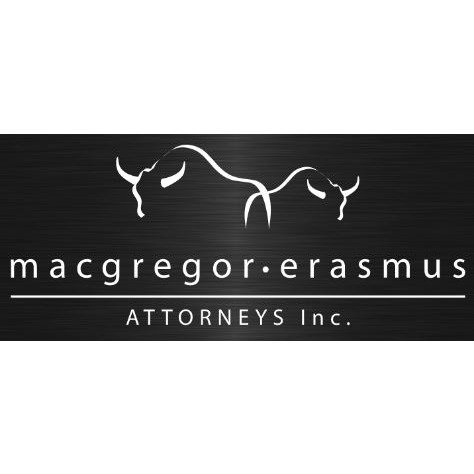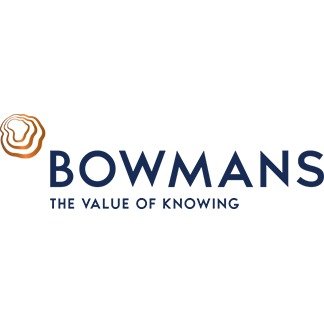Best ESG Advisory & Compliance Lawyers in Cape Town
Share your needs with us, get contacted by law firms.
Free. Takes 2 min.
List of the best lawyers in Cape Town, South Africa
About ESG Advisory & Compliance Law in Cape Town, South Africa
Environmental, Social, and Governance (ESG) Advisory & Compliance law is a rapidly evolving area of legal practice in Cape Town and across South Africa. ESG principles guide organizations in integrating environmental stewardship, social responsibility, and effective governance into their operations. Businesses in Cape Town, which sits at the forefront of South Africa's economic and environmental landscapes, face an increasing need to align with global ESG standards and local compliance requirements. ESG legal advisors support companies in developing, implementing, and monitoring policies that meet regulatory obligations and promote sustainable business practices.
Why You May Need a Lawyer
Individuals and organizations may require legal help with ESG Advisory & Compliance for several reasons. Businesses often need guidance in interpreting and applying ESG-related laws and regulations to avoid non-compliance and potential penalties. A lawyer can assist with drafting internal policies, conducting risk assessments, ensuring accurate reporting and disclosures, and managing stakeholder relations. Legal advice is also beneficial when facing audits, mergers or acquisitions, or public scrutiny regarding sustainability practices. Non-profit organizations, investors, and governmental bodies may also need legal input to ensure that their activities, partnerships, or investments follow ESG best practices and meet legal standards in Cape Town.
Local Laws Overview
ESG Advisory & Compliance in Cape Town is shaped by both national and municipal laws, as well as international frameworks influencing local practice. Key areas include:
- The Companies Act of 2008, which requires companies to act in the best interests of stakeholders and provide truthful financial and non-financial disclosures.
- South African Labour Laws, ensuring fair labor practices and promoting workplace equality, diversity, and inclusion.
- Broad-Based Black Economic Empowerment (B-BBEE) regulations promoting economic transformation and equal opportunities.
- Environmental legislation, such as the National Environmental Management Act, which mandates environmental risk assessments and sustainable practices.
- King IV Report on Corporate Governance, which sets out principles for responsible and ethical management.
- Sector-specific regulations for industries like mining, energy, financial services, and agriculture operating in the Western Cape region.
Cape Town's municipal by-laws may also play a role, especially regarding water use, waste management, and city planning. ESG compliance is dynamic and requires up-to-date legal guidance due to changing laws and increasing stakeholder expectations.
Frequently Asked Questions
What does ESG mean for businesses in Cape Town?
ESG stands for Environmental, Social, and Governance. Businesses in Cape Town are expected to consider environmental protection, social responsibility, and governance integrity in their operations, disclosures, and strategic planning.
Is ESG compliance mandatory?
While some ESG principles are voluntary or based on best practice, many requirements are enshrined in South African law, such as environmental regulations and governance standards. Non-compliance can lead to legal and reputational consequences.
How does B-BBEE impact ESG compliance?
B-BBEE (Broad-Based Black Economic Empowerment) is a critical component of the social aspect of ESG in South Africa. Businesses must regularly assess and report on their transformation efforts, which are legally required in many sectors.
Are there penalties for failing to comply with ESG standards?
Yes. Failure to meet certain ESG-related legal requirements can result in fines, license suspensions, civil actions, and reputational damage. Specific penalties depend on the law or regulation breached.
What ESG reporting frameworks apply in South Africa?
Common frameworks include the Global Reporting Initiative (GRI), the Integrated Reporting Framework, and guidelines from the King IV Report. Public companies must comply with disclosure requirements under the Companies Act.
Can ESG compliance attract investors?
Yes. A strong ESG profile can attract investment by demonstrating long-term risk management, sustainability, ethical leadership, and compliance. Many investors prioritize ESG factors in their decision-making.
What role does local government play in ESG?
Local government in Cape Town enforces certain ESG-related by-laws, especially relating to environmental management, water use, waste, and city planning. Businesses must comply with city-specific regulations in addition to national laws.
How do I keep up with ESG law changes?
Legal requirements around ESG are evolving. Businesses and organizations should frequently consult legal advisors, attend industry seminars, and monitor updates from regulatory bodies to stay informed and compliant.
Can ESG legal advisors help with risk management?
Absolutely. ESG legal advisors identify compliance gaps, assist with developing policies, provide training, and help manage risks related to environmental, social, and governance factors.
Is ESG only important for large companies?
No. Businesses of all sizes in Cape Town are increasingly expected by regulators, customers, and investors to address ESG issues. Small and medium enterprises can benefit significantly from adopting ESG best practices.
Additional Resources
Several resources and organizations can help those seeking ESG Advisory & Compliance support in Cape Town:
- Department of Environmental Affairs (DEA) - Provides guidance on environmental regulations.
- Companies and Intellectual Property Commission (CIPC) - Regulatory information for company governance and reporting.
- Broad-Based Black Economic Empowerment Commission - For B-BBEE compliance guidance.
- South African Human Rights Commission - Offers resources on social responsibility concerns.
- Western Cape Government - Local legislation and sector guidelines for the Cape Town region.
- South African Council of Churches, NGOs, and industry associations - For additional ESG insights and networking.
Next Steps
If you require legal assistance with ESG Advisory & Compliance in Cape Town, start by identifying your specific concerns or compliance obligations. Gather relevant documents, such as your company policies, audit reports, or correspondence with regulators. Reach out to a specialized ESG legal advisor or law firm with experience in South African and local Cape Town ESG matters. Give a clear outline of your needs, whether it is policy development, compliance assessment, regulatory reporting, or legal representation. Consider arranging an initial consultation to discuss your options, legal exposure, and strategies for achieving ESG compliance and growth. Staying proactive can help protect your organization from risks and enhance your reputation as a responsible, forward-thinking business in today's evolving legal landscape.
Lawzana helps you find the best lawyers and law firms in Cape Town through a curated and pre-screened list of qualified legal professionals. Our platform offers rankings and detailed profiles of attorneys and law firms, allowing you to compare based on practice areas, including ESG Advisory & Compliance, experience, and client feedback.
Each profile includes a description of the firm's areas of practice, client reviews, team members and partners, year of establishment, spoken languages, office locations, contact information, social media presence, and any published articles or resources. Most firms on our platform speak English and are experienced in both local and international legal matters.
Get a quote from top-rated law firms in Cape Town, South Africa — quickly, securely, and without unnecessary hassle.
Disclaimer:
The information provided on this page is for general informational purposes only and does not constitute legal advice. While we strive to ensure the accuracy and relevance of the content, legal information may change over time, and interpretations of the law can vary. You should always consult with a qualified legal professional for advice specific to your situation.
We disclaim all liability for actions taken or not taken based on the content of this page. If you believe any information is incorrect or outdated, please contact us, and we will review and update it where appropriate.















